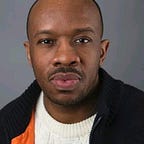The Potential Of Black Youth: Creativity And A Safe Space
Booker Washington Community Center — by way of my friend Antar Baker — asked me to come into their space and lead Black youth in a creative writing class based on the movie Black Panther. Wakanda — the fictional city where Black Panther lives and leads — is what we used to get them excited about the creative writing class. It is always humbling whenever I get the opportunity to guide the potential, the skills, the talents of Black youth.
I come from the west side of Rockford, Illinois not far from where Booker Washington Community Center is located. Just like the youth I spoke to about creativity that day, I had the same opportunities. There are Black educators and mentors such as Dorothy Paige-Turner, Glenn Patterson, and Reverend Chester Baker and his wife Doris Baker who encouraged my creativity or early intelligence as a child. The class at Booker Washington Community Center was my life coming full circle — I was transforming from student to educator.
Those educators and mentors saw in me the same light I see in these young people. I am looking into the eyes of the future, tapping into the potential not often recognized or acknowledged in some classrooms — especially when it comes to Black youth. It took us honing in on Wakanda to get to a place where Black youth felt comfortable and inspired to delve into their creative talents and energy. They were quick doing so though. All we needed were images from the movie and brief conversation about Wakanda.
Black youth’s potential is a portal into all of the creative energies and foundations we need to help them get to higher levels of mental and spiritual thought. It is already there waiting for the right words, the right setting, the right topics in order to be witnessed with all of its power and wonder. Similar to Dorothy Page Turner’s belief and inspiration in 5th and 6th grade students at Haskell Elementary School in the 1980s where I was a student, the right leadership was in place.
Flora Cousins — my Head Start teacher who is now a poet in Rockford, Illinois — is also responsible for the creative talents I posses and for my dedication to Black youth in our community. Her nurturing and even her recent support of who I have become has helped me in ways words cannot describe. I give all I am to Black youth because she gave her all to me when I was her pupil. It is the experiences and the encouragement we bring with us into our adult lives that allows us to pass knowledge, wisdom, understanding, and Black joy onto future generations.
The potential of Black youth needs to continue be nurtured, tapped into, and unearthed. This potential has so much to provide to cities and communities nationwide. We cannot let Black youth wind up on assembly lines when they have the smarts to invent, design, and develop with the creativity they all posses. The word will be a better place when we understand this and provide Black youth with all of the tools and resources they need for them to be their full selves.
All of the youth seen in the picture I am using for this article were excited to get involved. The movie Black Panther speaks to them in empowering and impactful ways. They relate to Wakanda because they recognize their people and their potential. Wakanda inspires them to think outside of the box imagining a world where Black people are not always experiencing racism — where we are fruitful, resourceful, strong, and thriving.
All because of the potential they posses we own it to them to provide them with the safe spaces they need to build on that potential to change their lives and this world.
